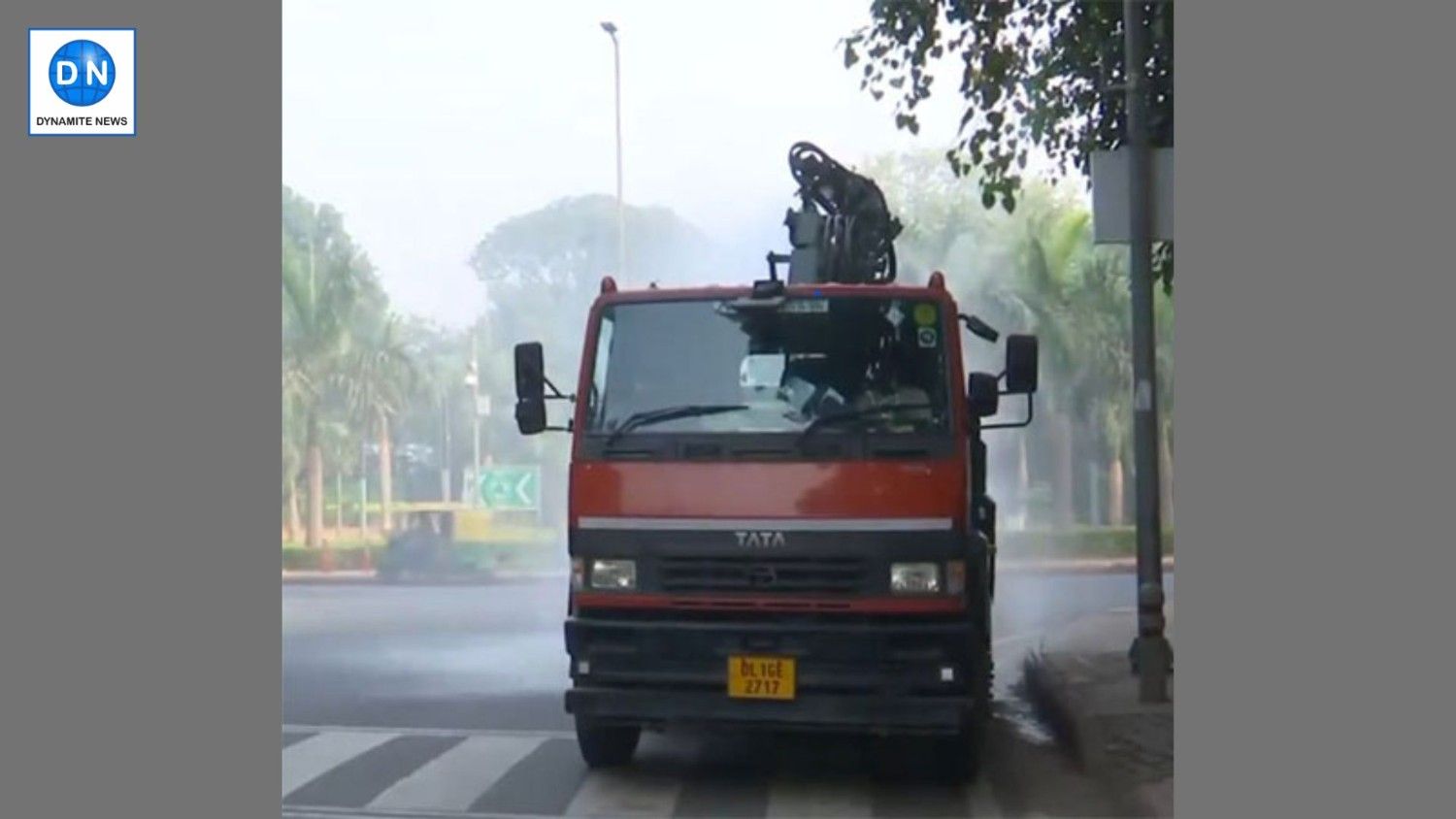
New Delhi: Amidst the rising air pollution levels in Delhi, Public Works Department (PWD) vehicles on Wednesday morning sprinkled water to limit the effects of pollution. The Commission for Air Quality Management (CAQM) has planned to clean identified roads on a daily basis across the National Capital Region (NCR).
Vacuum sweeping
The cleaning of roads will include mechanical or vacuum sweeping and water sprinkling on roads to reduce dust pollution. This comes after CAQM invoked the Stage-II Graded Response Action Plan (GRAP) across NCR.
Environment Minister statement
Delhi Environment Minister Gopal Rai earlier announced that GRAP-II rules have been enforced in north India as the air quality index (AQI) has risen over 300. Five new initiatives have been introduced in the second stage graded response action plan. Rai informed that diesel generators will be regulated and the frequency of metros and buses will be increased.
"Parking costs will be increased so that people don't use their cars for commuting. The aim is to further reduce dust and vehicular pollution," the minister said.
Also Read |
Delhi: Students resume classes as schools reopen after enforced pollution break

The CAQM had ordered the implementation of GRAP-II in the national capital region after the air quality was measured under the "Very Poor" category. The Central Pollution Control Board (CPCB) data confirms the same.
Thick smog over Delhi
Meanwhile, a thick smog engulfed Delhi on Wednesday morning as the AQI registered at 354. The doctors have said that rising air pollution is also causing an increase in the number of patients with respiratory issues by 15 per cent.
Earlier on Tuesday, Gopal Rai wrote a letter to the transport ministers of Haryana, Uttar Pradesh, and Rajasthan, requesting them to halt the entry of diesel buses from these states into the national capital.
"I am writing to express my deep concern regarding the increasing air pollution levels in Delhi with the onset of the current winter season. One major component of this air pollution is vehicular emissions largely attributed to the significant number of diesel buses entering the city from Uttar Pradesh. The impact of diesel emissions on air quality is well established, and the large influx of such buses significantly contributes to the degradation of air quality in Delhi, posing serious health risks to the residents," Gopal Rai stated In the letter.
Also Read |
Air Pollution: Delhi's air quality continues to be 'very poor'
He further said that Diesel buses emit a considerable amount of harmful pollutants responsible for respiratory diseases and other health issues.
"Delhi is already grappling with poor air quality, and this additional burden from interstate traffic is aggravating the situation," he stated. (with Agency inputs)







